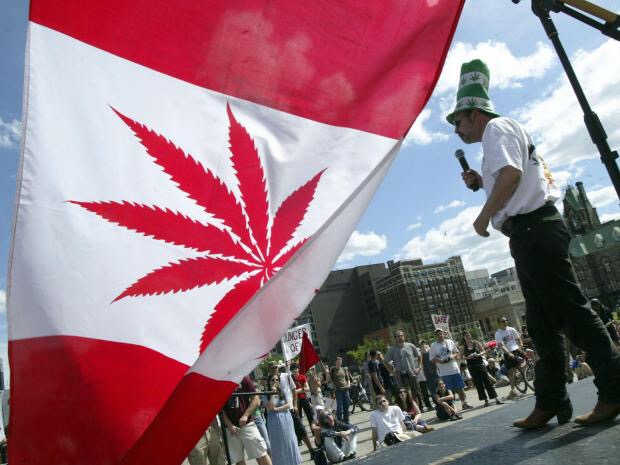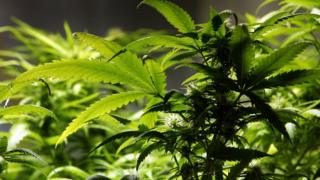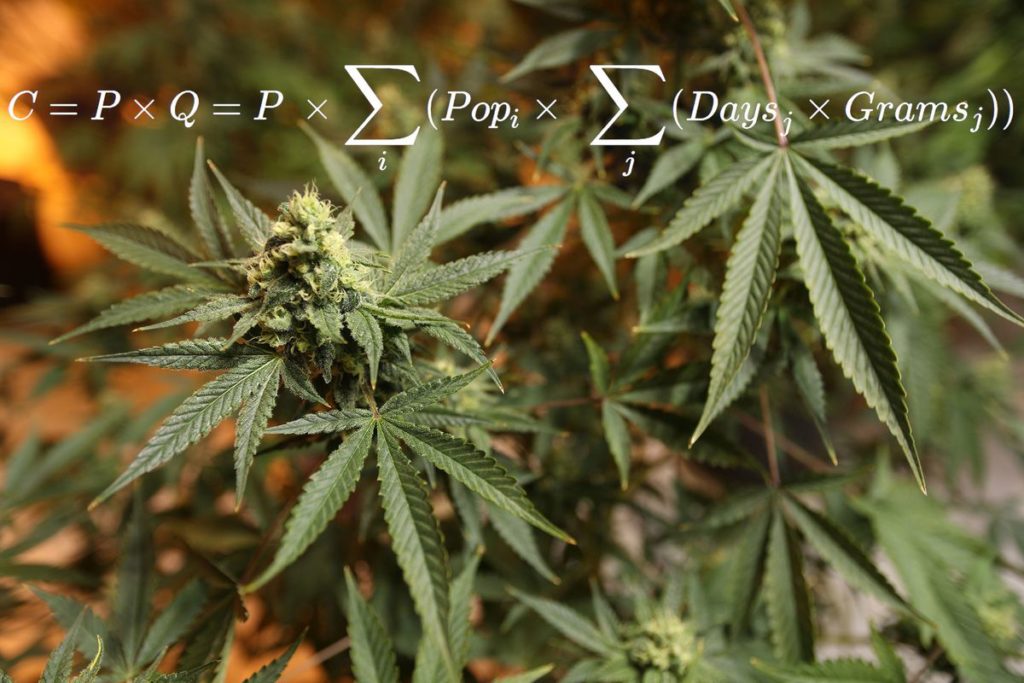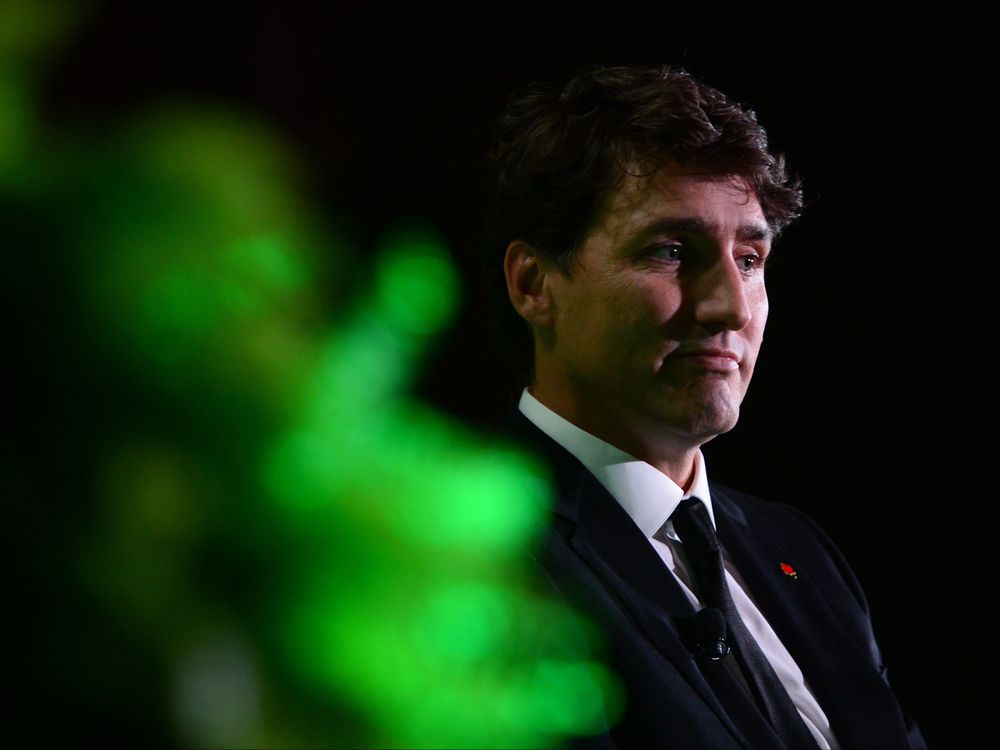As a member of the Liberal Party, Canadian Prime Minister Justin Trudeau promised to legalize cannabis during his 2015 campaign. But he had been contemplating the issue for far longer. In a 2013 interview with the Huffington Post, Trudeau admitted to sneaking a puff while a sitting member of Parliament. Then, last week, Trudeau released legislation that would make Canada the first industrialized nation to legalize marijuana. If it passes Parliament, which is widely expected, marijuana will be legally available across the vast nation by mid-2018.
While recreational marijuana for adult use is legal in eight U.S. states, and a growing tolerance of weed has cushioned the legalization announcement’s impact, Canada’s announcement is a major milestone for the legalization movement and big questions remain unanswered. Here, a what you need to know about recreational weed in Canada, and what that might mean for Americans.
How did Canada get here?
Canada legalized medical marijuana in 2001. Since then, the industry has evolved in a staid way. Producers grow their crops in enormous warehouses and directly send product to patients by mail or courier service. Medical marijuana companies raise money by going public on the stock exchange, just like normal businesses. Dispensaries are still illegal in Canada, though they’ve been tolerated in some areas.
What’s going to be legal?
In the U.S., legalization has led to an explosion of brands and products including edibles, vaping oils and a variety of hash-like concentrates generally preferred by the heaviest users. Canada has nothing like that. For now, edibles are illegal, though that is expected to change. The rules governing concentrates are murkier, but licensed producers have not devoted the same energy to product development as their American counterparts. For example, vape pens are not widely available through legal channels.
The overall approach has been cautious since it can “always relax the rules later,” according to Hilary Bricken, a Seattle cannabusiness lawyer with clients on both sides of the border. “Americans have been crossing the border to get blasted in Canada,” for a long time, Bricken says, and Canada seems to be doing all it can to tamp down consumer excitement. Most Canadian provinces still control some of their alcohol sales – the governments own the liquor stores – and Bricken says it’s likely that provinces will control cannabis distribution as well.
The drinking age in Canada is 18 or 19, depending on the province. The minimum cannabis age in Canada will be 18, though provinces can raise it, if they choose.
Will U.S. citizens be able to partake in legalized Canadian weed?
With such a tightly controlled market up north, Bricken doesn’t expect legalization in Canada to have much impact on U.S. consumption habits. While Americans will be able to buy marijuana in Canada – and it’s possible that Amsterdam style “coffeeshops” could eventually become popular – Canada’s federal government has decided to allow individual provinces to create their own rules governing public consumption.
Canada’s proposed legislation doesn’t offer any answers. The provinces will have to write their own rules, so tourists’ ability to enjoy weed on their own terms has not yet been determined. Some AirBnB’s in legal U.S. states and Canada already advertise themselves as 420 friendly and there will undoubtedly be more opportunities in Canada.
Perhaps recognizing that the horse has left the barn, the U.S. government hasn’t expressed much concern about Canada’s decision to legalize. The U.S. embassy in Ottawa told the Canadian Broadcasting Corporation that “legalization of marijuana in Canada will not have any impact on marijuana’s legality in the United States.” It also warned Canadians to be “aware of possible actions they may face upon attempted entrance into the United States.”
Will this affect the cannabis business in the U.S.?
In the business arena the disparity in how the two countries operate has created exciting opportunities according to Alan Brochstein, a Houston-based pot stock analyst who runs the finance site New Cannabis ventures.
Canadian companies, he says, are better capitalized than their American counterparts and know how to grow legal weed on a massive scale. He cited the Canadian grower Aphria which has partnered with companies in Arizona and Florida, where expertise is lacking. Meanwhile the major Colorado producer and retailer The Green Solution has moved to bring its expertise in product development and manufacturing up north.
“It’s definitely a two-way flow,” Brochstein says. Ultimately though he thinks national legalization gives Canada an edge. Federal illegality is a “cloud” over the U.S. industry, he says. “It’s sad but true that Canada is the global leader in cannabis.”
Could this mean federal legalization for the U.S. is close behind?
In the U.S., though 29 states have some sort of legalization program, cannabis remains federally illegal, including for medical use. Due largely to this restriction, America’s legal cannabis industry has grown into a patchwork Frankenstein monster: each state has had to determine for itself whether legalization makes sense and how the industry should be governed.
During the Obama administration the monster’s ostensible “head” in Washington D.C. demonstrated minimal interest in coordinating the state experiments. The guiding principle, laid out in a 2013 Justice Department memo, is that law enforcement wouldn’t interfere with state legal industries, as long as they followed a few overarching rules like no shipments across state lines and no selling to children. Other U.S. agencies have, for the most part, also held back from discussing relevant issues like the industry’s environmental impact and labor standards.
This crazy quilt approach has advantages for some: small companies and brands have been able to grow without competition with corporate giants. States, and in many cases counties and cities, have been able to assert their priorities in terms of what products are available, and where they are produced and sold.
Yet the Obama administration’s hands-off approach might be described as benign neglect. Thus far under Trump, the industry has continued to operate, but its mellow has been harshed. The need for criminal justice reform is one of the few areas where a bipartisan consensus has grown over the last few years. Trump Attorney General Jeff Sessions has not joined the consensus continuing to support tough on crime policies. “When they nominated me for attorney general, you would have thought the biggest issue in America was when I said, ‘I don’t think America’s going to be a better place if they sell marijuana at every corner grocery store,” he recently said, suggesting frustration with the impossibility of stopping legalization, or that his boss won’t let him try – at least so far. Yet with Canada joining.
credit:rollingstone.com













